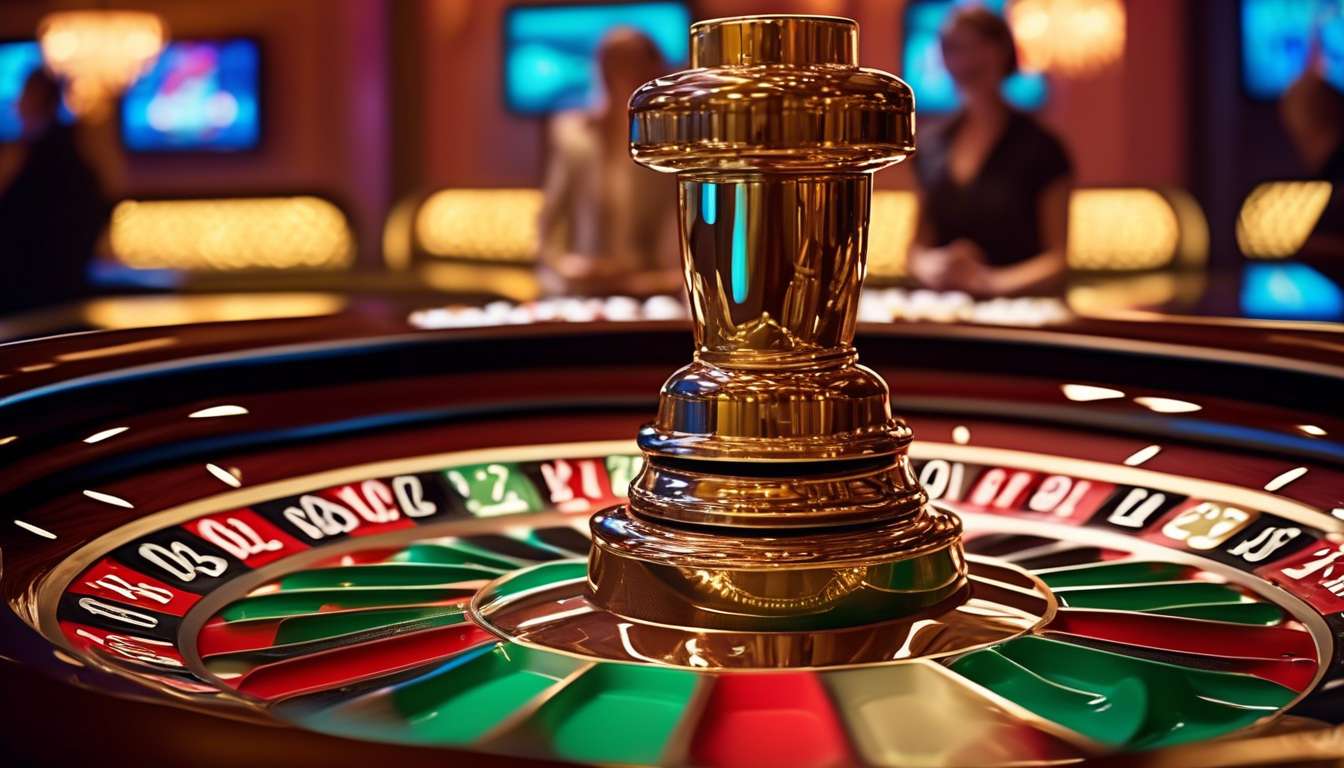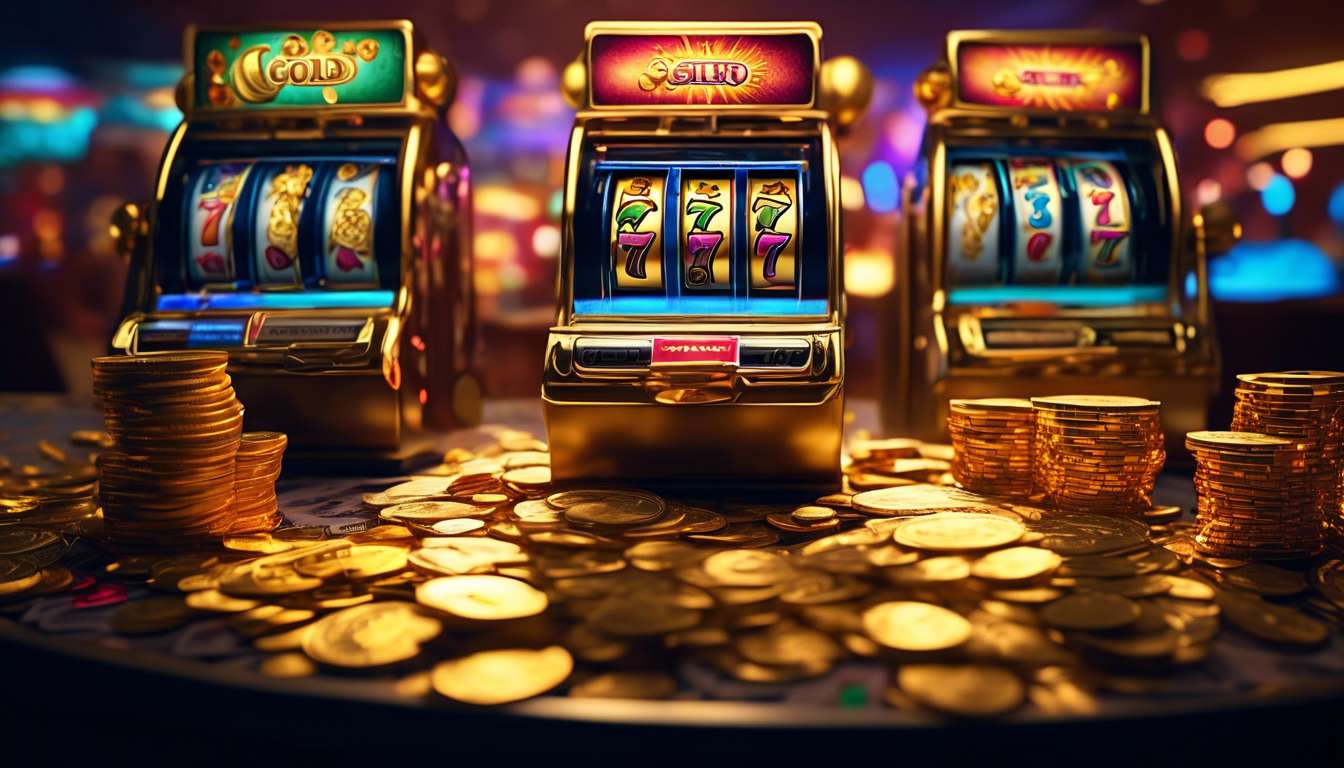As we delve into the fascinating world of casino statistics, we find ourselves captivated by the age-old concept of lucky streaks. Together, we embark on a journey to explore the numbers and probabilities that underpin our favorite games of chance.
We all know the thrill of a hot streak, that elusive series of wins that seems almost magical in its improbability. But what do the statistics say about these experiences? Are they merely illusions crafted by chance, or is there a mathematical explanation behind why they occur?
By examining data and patterns from a variety of games, including:
- Poker
- Roulette
- Slots
we aim to uncover the truth behind these phenomena.
Through our collective curiosity and analytical approach, we hope to shed light on whether luck truly favors the bold or if it is simply a fleeting mirage in the unpredictable landscape of the casino floor.
The Concept of Lucky Streaks
Many of us have experienced the thrill of a lucky streak, where success seems to magically flow in our favor. We feel an exhilarating sense of connection with those around us, united by the shared belief that we’ve tapped into something extraordinary. But what truly defines these streaks? It’s a fascinating topic that piques our collective curiosity.
Understanding lucky streaks involves examining the delicate interplay between probability and our perceptions.
Often, our minds are eager to find patterns, leading us to believe that a series of wins is more than mere chance. This is where the gamblers’ fallacy comes into play.
- We might think that after a string of successes, we’re destined for more.
- Conversely, we might believe that a loss is overdue.
However, each event remains independent, and probability doesn’t change based on past outcomes.
As we explore this concept together, we can better appreciate the allure of lucky streaks while recognizing the importance of questioning our assumptions.
Probability and Hot Streaks
In exploring hot streaks, we often find ourselves questioning how chance and statistical odds influence these bursts of consecutive wins. Our shared curiosity brings us together as we delve into the role probability plays in these seemingly magical moments.
We know that lucky streaks can feel like a cosmic alignment, yet they’re deeply rooted in the laws of chance. Probability informs us that each event in a casino game, like a spin of the roulette wheel, is independent of the last. This understanding helps us recognize the gamblers’ fallacy, the mistaken belief that past outcomes affect future results.
As a community, we can appreciate the thrill of a hot streak while acknowledging its unpredictable nature. By embracing probability, we empower ourselves to enjoy these moments without falling into the trap of false expectations.
Together, we can celebrate the adrenaline of a winning streak, knowing that its magic lies not in destiny, but in the fascinating dance of chance.
Statistical Analysis in Poker
In poker, statistical analysis allows us to make informed decisions by calculating odds and evaluating risk versus reward. As a community of poker enthusiasts, we understand that relying solely on lucky streaks isn’t a strategy. Instead, we delve into probability to determine our next move, striving to outsmart the gamblers’ fallacy—the belief that past outcomes influence future ones.
When we sit at the poker table, we’re not just players; we’re statisticians at heart, crunching numbers in real-time. Each card dealt shifts the probability landscape, and we adjust our approach accordingly. Our shared goal is to:
- Maximize potential gains
- Minimize losses
This balance is achieved through careful analysis and experience.
We find camaraderie in the shared pursuit of mastery, knowing that understanding statistical nuances sets us apart. Together, we embrace the thrill of calculated risks, knowing that while luck may play a role, it’s our collective knowledge and skill that truly guide us.
Roulette: Streaks vs. Randomness
In roulette, we often grapple with the tension between observing streaks and acknowledging the game’s inherent randomness. Each spin of the wheel remains an independent event, untouched by previous outcomes. Yet, it’s easy to get swept up in the thrill, convincing ourselves that a number is "due" for a win. This belief in patterns where none exist is known as the gambler’s fallacy.
As a community of gamblers, we share stories of extraordinary runs. However, acknowledging randomness helps us stay grounded. The probability of hitting a specific number remains constant at 1 in 38 (or 1 in 37 in European roulette), regardless of past results.
We bond over our shared experiences, understanding that while lucky streaks may occur, they are merely statistical anomalies. By recognizing this, we can enjoy the game without falling prey to illusions, fostering a sense of camaraderie and clarity.
Unveiling Patterns in Slots
Slot machines captivate us with their flashing lights and sounds, leading us to wonder if there’s a hidden pattern behind their seemingly random outcomes. As a community of players, we find ourselves drawn to the allure of lucky streaks, hoping to unlock the secret that might tip the scales of fortune in our favor.
The probability of winning on a slot machine is determined by complex algorithms, ensuring each spin is independent and random. Yet, we can’t help but search for patterns, feeling a sense of connection when the reels align in our favor.
While the idea of lucky streaks is enticing, it’s crucial to remember that each spin’s outcome doesn’t influence the next. This is where the gambler’s fallacy often trips us up, as we might believe that a win is due after a series of losses.
By understanding the role of probability, we can enjoy the thrill of the game without falling into the trap of mistaken beliefs.
The Role of Gamblers’ Fallacy
Many of us have fallen into the trap of believing that after a string of losses, a win is almost certain. This misconception is what the gamblers’ fallacy feeds on. We’ve all been there, thinking a lucky streak is just around the corner. However, the truth is that each play in a casino game is an independent event with its own probability, unaffected by previous outcomes.
The gamblers’ fallacy convinces us that the universe owes us a win, creating a false sense of hope and belonging in the randomness of gambling. It whispers that after losing multiple times, odds must be in our favor, but reality doesn’t work that way. Lucky streaks don’t follow predictable patterns, and relying on them can lead us astray.
By understanding this fallacy, we can make more informed decisions and enjoy the gaming experience without falling into the trap of expecting impossible patterns to emerge. Let’s embrace the chance, not the myth.
Mathematical Explanations for Wins
In the world of gambling, understanding the math behind wins can demystify the experience and help us appreciate the true nature of chance.
When we talk about lucky streaks, it’s essential to recognize that they’re not just whimsical occurrences but can be explained through probability. Each spin of the roulette or hand of cards is an independent event, meaning the outcome of one doesn’t influence the next.
This is where the gambler’s fallacy often misleads us:
- We might believe that after several losses, a win is due.
- Statistically, that’s not the case, as each event is independent.
In our shared journey through casino halls, knowing the mathematical foundations helps us see beyond myths.
Probability tells us that while streaks are possible, they’re simply part of the randomness of the game. By embracing this understanding, we become part of a community that respects both the thrill and the reality of gambling.
Together, we can enjoy the game with a clearer perspective, knowing how luck and math intertwine.
Debunking Luck in Casinos
In casinos, we often attribute wins to luck, but understanding the mechanics reveals that outcomes are dictated by mathematics rather than fortune.
We’ve all heard tales of lucky streaks, those moments when everything seems to fall perfectly into place. However, these streaks are governed by probability, not magic. The casino games we love are designed to ensure the house maintains an edge, using statistical principles that keep our odds of winning lower than we might like.
Let’s consider the gamblers’ fallacy, a common misconception that can mislead us. Many believe that if a certain outcome hasn’t occurred in a while, it’s due to happen soon. In reality, each spin of the roulette wheel or roll of the dice is independent, unaffected by previous results.
No matter how much we long for a sense of control or predictability, the truth is, in the world of casinos, probability reigns supreme. Understanding this can help us enjoy the games responsibly and as a shared community experience.
What psychological factors contribute to a gambler’s belief in lucky streaks?
When we think about psychological factors that contribute to a gambler’s belief in lucky streaks, it’s important to consider how our minds can sometimes seek patterns or meaning in random events.
This tendency can lead us to believe that past wins or losses have a direct impact on future outcomes. Additionally, the idea of luck can play a significant role in shaping our beliefs and behaviors when it comes to gambling.
Key factors include:
-
The Gambler’s Fallacy: This is the belief that if something happens more frequently than normal during a given period, it will happen less frequently in the future (or vice versa).
-
Confirmation Bias: Gamblers may pay more attention to wins and ignore losses, reinforcing their belief in lucky streaks.
-
Illusion of Control: Some gamblers believe they can influence outcomes through rituals or specific behaviors.
Understanding these psychological factors can help in addressing problematic gambling behaviors by making individuals aware of the cognitive biases that influence their decisions.
How do casinos use the concept of lucky streaks in their marketing strategies?
Casinos strategically use the allure of lucky streaks in their marketing.
They highlight big wins and create an atmosphere of excitement around the possibility of hitting a hot streak. By tapping into our desire for luck and success, casinos draw us in and keep us coming back for more.
It’s a clever way to engage customers and make them feel like they’re part of something special.
Are there any cultural differences in how lucky streaks are perceived around the world?
We notice cultural differences in perceptions of lucky streaks worldwide. It’s fascinating how various societies view luck and streaks differently. These nuances influence how individuals approach the concept of lucky streaks in different regions.
Understanding these cultural variations can provide valuable insights into how people from diverse backgrounds interpret and experience luck.
Embracing these differences enriches our understanding of the world and the role of luck in our lives.
Conclusion
In conclusion, casino statistics reveal that lucky streaks are often a result of probability, rather than pure luck.
Analyzing patterns in games like poker, roulette, and slots shows that:
- Wins can be explained mathematically.
- The notion of pure chance is often debunked.
Understanding the math behind casino games can help you:
- Make informed decisions.
- Avoid falling for the gambler’s fallacy.
So next time you hit a lucky streak, know that it’s not just luck at play.




